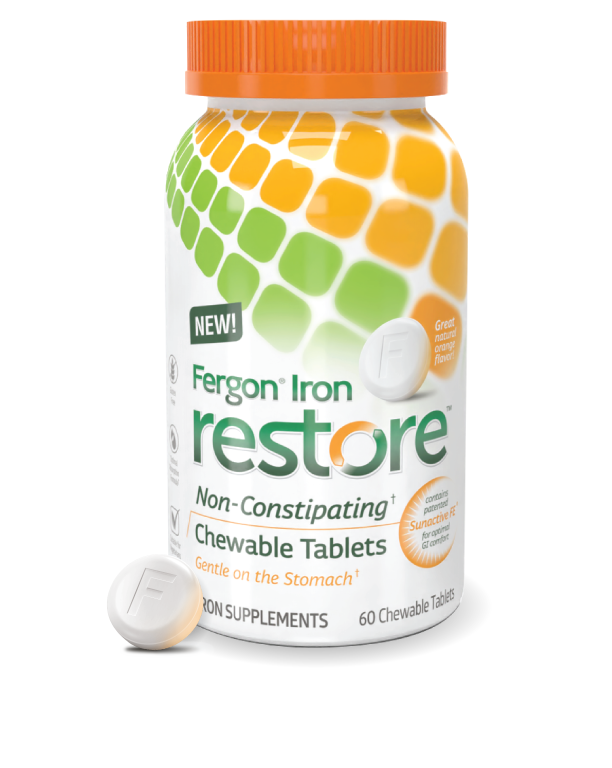In regard to maintaining consistent iron levels among women, the focus is often on teenage girls, pregnant women, and menopausal women. However, perimenopausal women are certainly not immune to the challenges of keeping their iron levels up either.
Many changes are going on in a woman’s body during the premenopausal years, but the symptoms are often overlooked or misinterpreted.
This article will describe what perimenopause is, when premenopausal symptoms typically begin, and why iron levels can become lower during this time of a woman’s life. It will also explain how perimenopausal women can monitor their iron levels and when it time to consider iron supplements as an option.
What Is Perimenopause?
Perimenopause is a transitional time between menstruation and menopause, and it is characterized by hormonal shifts at the beginning of the end of a woman’s reproductive years. Although women typically experience lower fertility during perimenopause, they still ovulate and are still able to become pregnant.
When Do Premenopausal Symptoms Begin?
Premenopausal symptoms begin in most women in the late 40s, but some women can begin to notice significant changes in their 30s. This transitional period may last a few months or a few years and be more noticeable in some women than others. Most women experience the perimenopause transition for about four years leading up to full menopause.
The production of progesterone and estrogen naturally decrease in the female body with age. But women who have a family history of early menopause, who smoke cigarettes, or who have never been pregnant may experience premenopausal symptoms earlier than their peers.
Can Perimenopause Cause Fatigue?
Fatigue is one of the most common premenopausal symptoms that women in their 30s and 40s experience because of hormone fluctuations. In addition to fatigue, other common symptoms include mood swings, irritability, irregular menstrual cycles, headaches, insomnia, vaginal dryness, and hot flashes. A physician can typically diagnose perimenopause based on a description of the symptoms and by taking a blood test to determine hormone levels.
Managing Perimenopause Iron Deficiency
Because perimenopausal women commonly experience irregular periods and an unusually heavy blood flow, more iron is lost in each monthly cycle. This phenomenon may lead perimenopausal women to become iron deficient, even if they have never had an issue with retaining an adequate supply of iron in the past. Perimenopausal women should get their iron levels tested by a trusted medical professional at least once per year to determine if a perimenopause iron deficiency is to blame for fatigue and other symptoms. Fergon, a high potency iron supplement, may be recommended for perimenopause iron deficiency.
The Optimal Perimenopause Diet
One of the most highly recommended diets for perimenopausal women is the anti-inflammatory diet, which includes plant-based proteins, fatty fish, fruits, vegetables, and fresh herbs and spices. Some of the best foods to incorporate in a perimenopause diet are beans, nuts, salmon, oatmeal, spinach, and cherries. In addition to diet, getting aerobic exercise, practicing strength training exercise, and engaging in stress-reduction techniques can help offset the effects of perimenopause symptoms.

